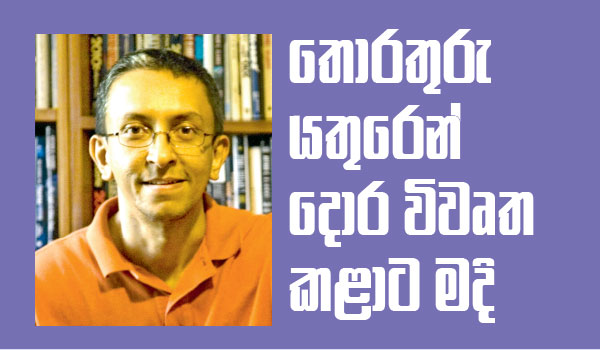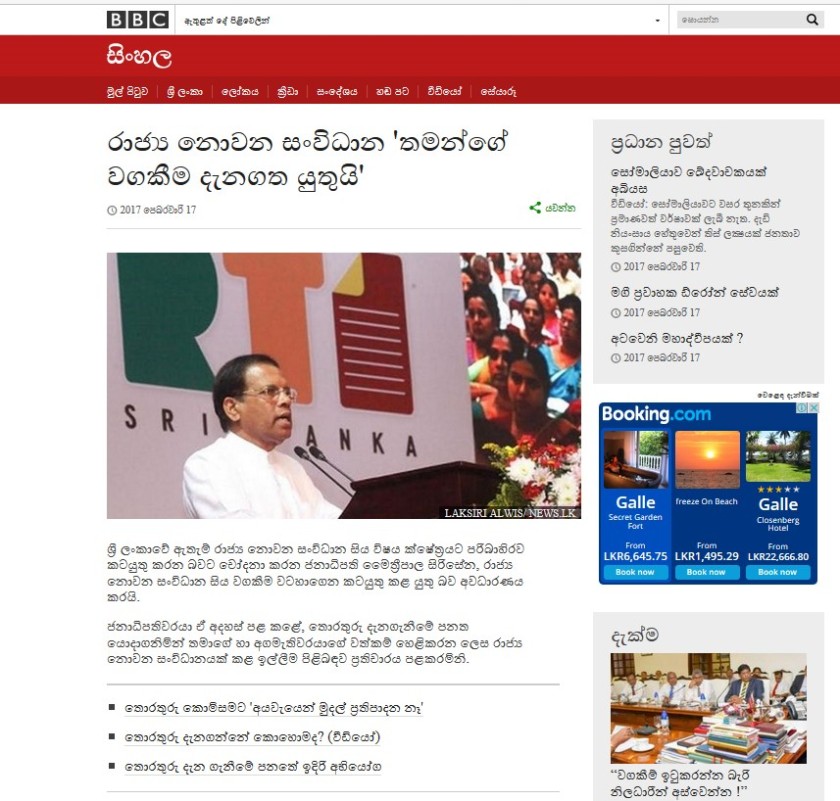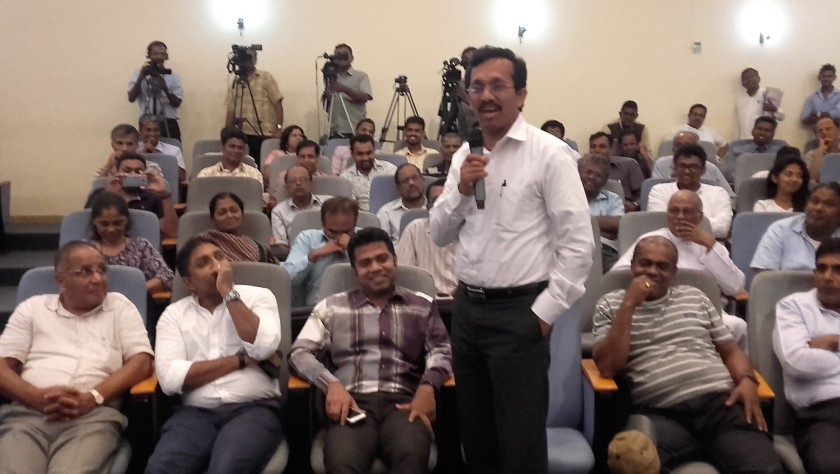Op-ed published in Ceylon Today broadsheet newspaper on Sunday, 1 April 2018:

Sri Lanka’s RTI Glass is Slowly Filling Up
by Nalaka Gunawardene
In June 2016, Sri Lanka became the 108th country in the world to pass a law allowing citizens to demand information from the government. After a preparatory period of six months, citizens were allowed to exercise their newly granted Right to Information (RTI) by filing information applications from February 2017 onward.
Just over a year later, the results are a mixed bag of successes, challenges and frustrations. There have been formidable teething problems – some sorted out by now, while others continue to slow down the new law’s smooth operation.
On the ‘supply side’ of RTI, several thousand ‘public authorities’ at central, provincial and local government level had to get ready to practise the notion of ‘open government’. This includes the all government ministries, departments, state corporations, other stator bodies and companies that are wholly or majority state owned. Despite training programmes and administrative circulars, there remain some gaps in officials’ attitudes, capacity and readiness to process citizens’ RTI applications.
To be sure, we should not expect miracles in one year after we have had 25 centuries of closed government under all the Lankan monarchs, colonial rulers and post-independence governments. RTI is a major conceptual and operational ‘leap’ for some public authorities and officials who have hidden or denied information rather than disclosed or shared it with the public.
Owing to this mindset, some officials have been trying to play hide-and-seek with RTI applications. Others are grudgingly abiding by the letter of the law — but not its spirit. These challenges place a greater responsibility on active citizens to pursue their RTI applications indefatigably.
During the first year of operation, the independent RTI Commission had received a little over 400 appeals from persistent citizens who refused to take ‘No’ for an answer. In a clear majority of cases heard so far, the Commission has ordered disclosure of information that was initially declined. These rulings are sending a clear message to all public authorities: RTI is not a choice, but a legal imperative. Fall in line, or else…

To ensure all public authorities comply with this law, it is vital to sustain citizen pressure. This is where the ‘demand side’ of RTI needs a lot more work. Unlike most other laws of the land that government uses, RTI is a rare law that citizens have to exercise – government only responds. Experience across Asia and elsewhere shows that the more RTI is used by people, the sharper and stronger it becomes.
It is hard to assess current public awareness levels on RTI without doing a large sample survey (one is being planned). However, there is growing anecdotal evidence to indicate that more Lankans have heard about RTI even if they are not yet clear on specifics.
But we still have plenty to do on the demand side: citizens need to see RTI as a tool for solving their local level problems – both private and public grievances – and be motivated to file more RTI applications. For this, they must overcome a historical deference towards government, and start demanding answers more vociferously.
Citizens who have been denied clear or any answers to their pressing problems – on missing persons, land rights, subsidies or public spending – are using RTI as an additional tool. We need to sustain momentum. RTI is a marathon, not a sprint.
Even though some journalists and editors were at the forefront in advocating for RTI in Sri Lanka for over two decades, the Lankan media as a whole is yet to grasp RTI’s potential.
Promisingly, some younger journalists have been producing impressive public interest stories – on topics as varied as disaster responses, waste management and human rights abuses – based on what they uncovered with their RTI applications. One of them, working for a Sinhala language daily, has filed over 40 RTI applications and experienced a success rate of around 70 per cent.
Meanwhile, some civil society groups are helping ordinary citizens to file RTI applications. A good example is the Vavuniya-based youth group, the Association for Friendship and Love (AFRIEL), that spearheads a campaign to submit RTI applications across Sri Lanka’s Northern Province, seeking information on private land that has been occupied by the military during the civil war and beyond. Sarvodaya, Sri Lanka’s largest development organisation, is running RTI clinics in different parts of the country with Transparency International Sri Lanka to equip citizens to exercise this new right.
The road to open government is a bumpy one, but there is no turning back on this journey. RTI in Sri Lanka may not yet have opened the floodgates of public information, but the dams are slowly but surely breached. Watch this space.
Disclosure: The writer works with both government and civil society groups in training and promoting RTI. These views are his own.



























